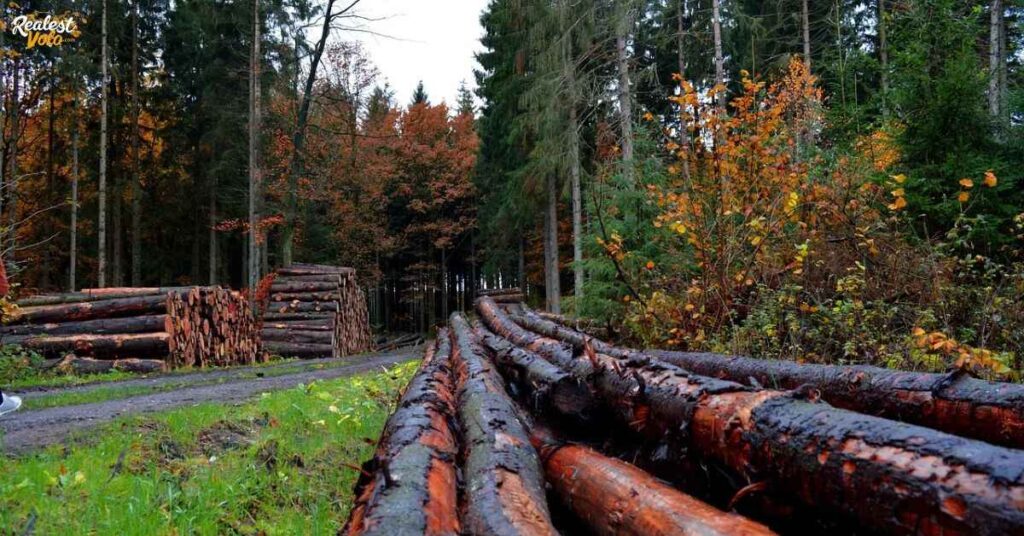Accretion in real estate refers to the gradual and natural accumulation of land along shorelines, riverbanks, or other waterfront properties due to the deposition of sediments, soil, or other materials.
This process can lead to an increase in the size of a property over time, potentially adding valuable land to the owner’s real estate holdings. Accretion is a crucial concept in property ownership, especially for waterfront properties, as it can significantly impact property boundaries, riparian rights, and property values.
Understanding The Concept Of Accretion
Accretion is a natural phenomenon that occurs through the action of water currents, waves, and erosion. As water flows along shorelines or riverbanks, it carries sediments and materials that can slowly accumulate on the land, gradually building up and extending the shoreline outward. This process can occur over many years or even decades, with the land gradually expanding through the deposition of soil, sand, or other materials.
It’s important to note that accretion is distinct from other processes that can alter shorelines, such as avulsion (sudden and perceptible changes in the course of a waterway) or reliction (the gradual exposure of land due to the recession of water levels).
Also Read: The 15 Best Neighborhoods in Palm Springs: A Comprehensive Guide
Accretion’s Role In Real Estate
In the context of real estate, accretion can have significant implications for property ownership, property boundaries, and property values. When accretion occurs on a waterfront property, the newly formed land typically becomes part of the owner’s property, effectively increasing the size of their land holdings. This can be particularly valuable for beachfront homes, waterfront communities, coastal cities, and lakefront properties, where additional land can enhance the property’s value and appeal.
However, it’s important to note that the laws and regulations surrounding accretion can vary depending on the location and local jurisdictions. Accretion laws and guidelines often govern how accreted land is handled, including issues related to property ownership rights, riparian rights, and boundary disputes.
Accretion Laws And Legal Disputes

While accretion is generally considered a natural process, it can sometimes lead to legal disputes and property boundary conflicts between neighbors or adjacent property owners. In many jurisdictions, the ownership of accreted land is subject to specific accretion laws and regulations, which aim to provide clarity and guidance on how to handle such situations.
For example, some laws may stipulate that the accreted land becomes the property of the adjacent landowner, while others may require certain conditions to be met, such as the accretion occurring gradually and imperceptibly over time. Additionally, there may be provisions related to neighbor boundary issues, property line conflicts, and land disputes that can arise due to accretion.
It’s essential for property owners, particularly those with waterfront properties, to familiarize themselves with the relevant accretion laws and regulations in their area to understand their rights and obligations regarding accreted land.
Also Read: What Is An Injunction In Real Estate?
Accretion And Riparian Rights
Accretion is closely tied to the concept of riparian rights, which are the rights associated with owning property adjacent to a body of water, such as a river, lake, or ocean. Riparian rights typically include the right to access and use the water, as well as certain rights related to the shoreline and waterfront areas.
In the context of accretion, riparian rights can play a crucial role in determining ownership and control over accreted land. Property owners with riparian rights may have a stronger claim to any land that accretes onto their shoreline, as the accreted land is often considered an extension of their existing riparian property rights.
It’s important to note that riparian rights can vary depending on the location and specific laws and regulations in place. Property owners should consult with legal professionals or local authorities to fully understand their riparian rights and how they relate to accretion in their area.
Accretion In Practice: Real-Life Examples
Accretion is a phenomenon that occurs in various parts of the world, with some areas experiencing more significant instances of land growth due to this process.
Here are a few real-life examples of accretion in action:
Coastal Accretion In Louisiana
The Mississippi River Delta region in Louisiana is a well-known area where accretion plays a significant role in shaping the coastline. The deposition of sediments carried by the Mississippi River has led to the formation of new land, creating unique landscapes and habitats.
Riverbank Accretion In Bangladesh
The Ganges-Brahmaputra Delta in Bangladesh is another area where accretion is prevalent. The rivers carry vast amounts of sediments, which gradually accumulate along the banks, leading to the formation of new land and shifting river channels.
Beach Accretion In Florida
Many coastal areas in Florida, such as Miami Beach and the Florida Keys, have experienced accretion due to the movement of sand and sediments along the shoreline. This process has both added and eroded land in different areas, impacting beach ecosystems and coastal communities.
Lakefront Accretion In Michigan
The Great Lakes region, particularly in states like Michigan, has witnessed accretion along lakefront properties. The deposition of sediments and soil carried by waves and currents has gradually extended shorelines and altered property boundaries.
These examples illustrate the diverse nature of accretion and its impact on various types of waterfront properties, from coastal regions to riverbanks and lakefronts.
Accretion Vs. Removal Of Land

While accretion involves the gradual addition of land, it’s essential to distinguish it from the removal or loss of land, which can also occur along shorelines and waterways. Processes such as erosion, coastal storms, and rising sea levels can lead to the loss of land, potentially impacting property boundaries and values.
In some cases, both accretion and land removal can occur simultaneously or in different areas along the same shoreline, creating a dynamic and ever-changing landscape. Property owners and authorities must carefully monitor and manage these processes to ensure the sustainable use and protection of coastal and waterfront areas.
Local Laws And Accretion
As mentioned earlier, the laws and regulations governing accretion can vary significantly depending on the location and jurisdiction. Local laws and ordinances often play a crucial role in determining how accretion is handled, including issues related to property ownership, boundary disputes, and riparian rights.
For example, some localities may have specific guidelines or permitting processes in place for dealing with accreted land, while others may defer to state or federal laws. Additionally, local zoning regulations and land-use policies can impact how accreted land can be utilized or developed.
It’s essential for property owners, developers, and stakeholders to thoroughly research and understand the local laws and regulations pertaining to accretion in their area. Consulting with local authorities, legal professionals, and land-use experts can help ensure compliance and avoid potential disputes or conflicts arising from accretion.
Significant Impacts Of Accretion
Accretion can have far-reaching impacts on various aspects of real estate, property ownership, and coastal and waterfront communities.
Some of the significant impacts of accretion include:
Property Value Changes
The addition or loss of land due to accretion can significantly impact the value of a property. Properties with more land area, especially in desirable waterfront locations, typically command higher values in the real estate market.
Boundary Disputes
Accretion can lead to disputes over property boundaries, especially when adjacent properties are affected differently by the process. Clear delineation of boundaries and adherence to local laws and regulations are crucial to mitigate such disputes.
Environmental Impacts
Accretion can have both positive and negative impacts on the environment. While it can create new habitats and ecosystems, it can also disrupt existing ones or contribute to coastal erosion in other areas.
Infrastructure And Development
Accretion can necessitate changes or adaptations to existing infrastructure, such as roads, utilities, and coastal defenses. It can also create opportunities for new development or redevelopment projects on accreted land.
Coastal Management
Accretion is a natural process that must be considered in coastal management strategies and planning efforts. Understanding and predicting accretion patterns can inform decision-making related to coastal development, erosion control measures, and environmental protection.
Given the far-reaching impacts of accretion, it is crucial for property owners, developers, policymakers, and communities to proactively address and manage this phenomenon through responsible stewardship, informed decision-making, and adherence to relevant laws and regulations.
Frequently Asked Question
What Is Accretion In Real Estate?
Accretion is the gradual and natural buildup of soil or sediment on a property’s shoreline, increasing the land size over time.
Who Owns The Accreted Land In Real Estate?
The property owner adjacent to the water body typically gains ownership of the newly formed accreted land.
How Does Accretion Affect Property Value?
Accretion can increase a waterfront property’s value by expanding the land size and potentially providing more usable space.
What Are Riparian Rights In Relation To Accretion?
Riparian rights govern a property owner’s use and access to the adjacent water body and are crucial in determining ownership of accreted land.
Can Accretion Lead To Legal Disputes?
Yes, legal disputes can arise over property boundaries and ownership rights when there is a significant change in the land due to accretion.
Final Words
Accretion is a natural process that can have significant implications for real estate, property ownership, and waterfront communities. By understanding the concept of accretion, its legal and regulatory framework, and its potential impacts, stakeholders can better navigate the complexities associated with this phenomenon.
Effective management of accretion requires a multifaceted approach that considers legal, environmental, and economic factors. Collaboration between property owners, local authorities, legal professionals, and environmental experts is essential to ensure that accretion is handled responsibly and in a manner that balances competing interests.
As coastal and waterfront areas continue to evolve due to natural processes like accretion, it becomes increasingly important to foster sustainable practices and policies that protect both private property rights and the long-term health of our natural ecosystems. By embracing a comprehensive understanding of accretion and its nuances, we can work towards creating resilient and thriving waterfront communities that coexist harmoniously with the ever-changing landscape.











